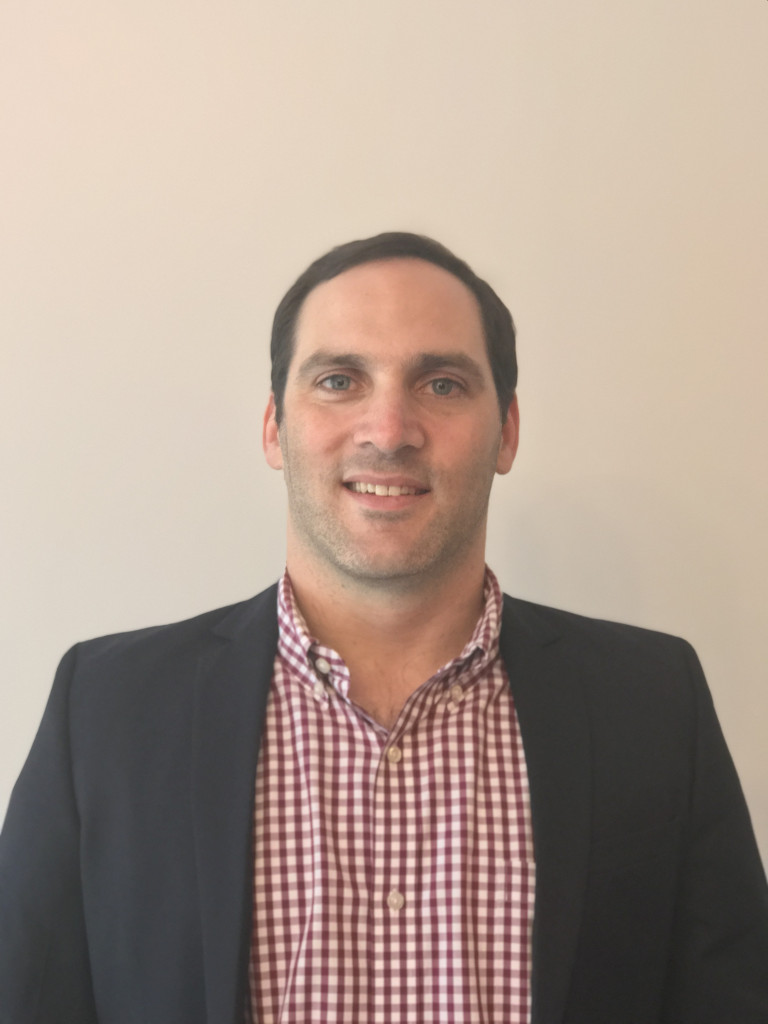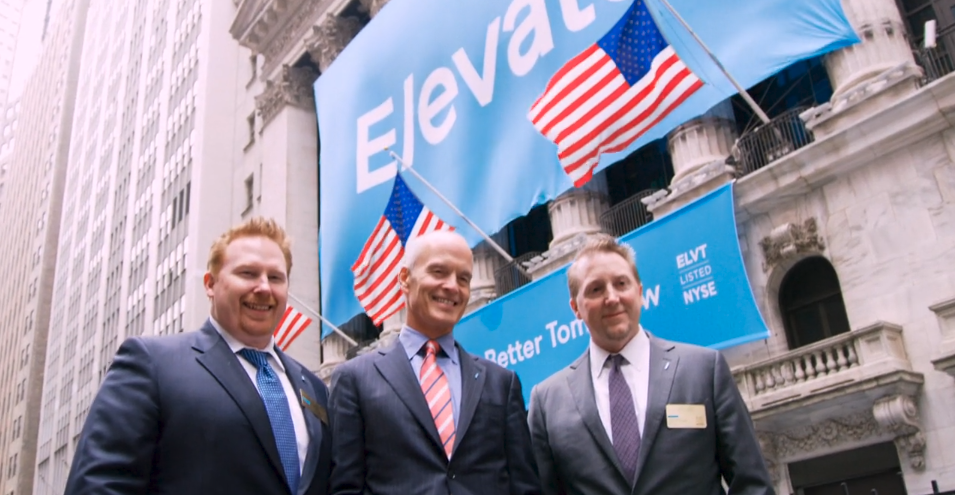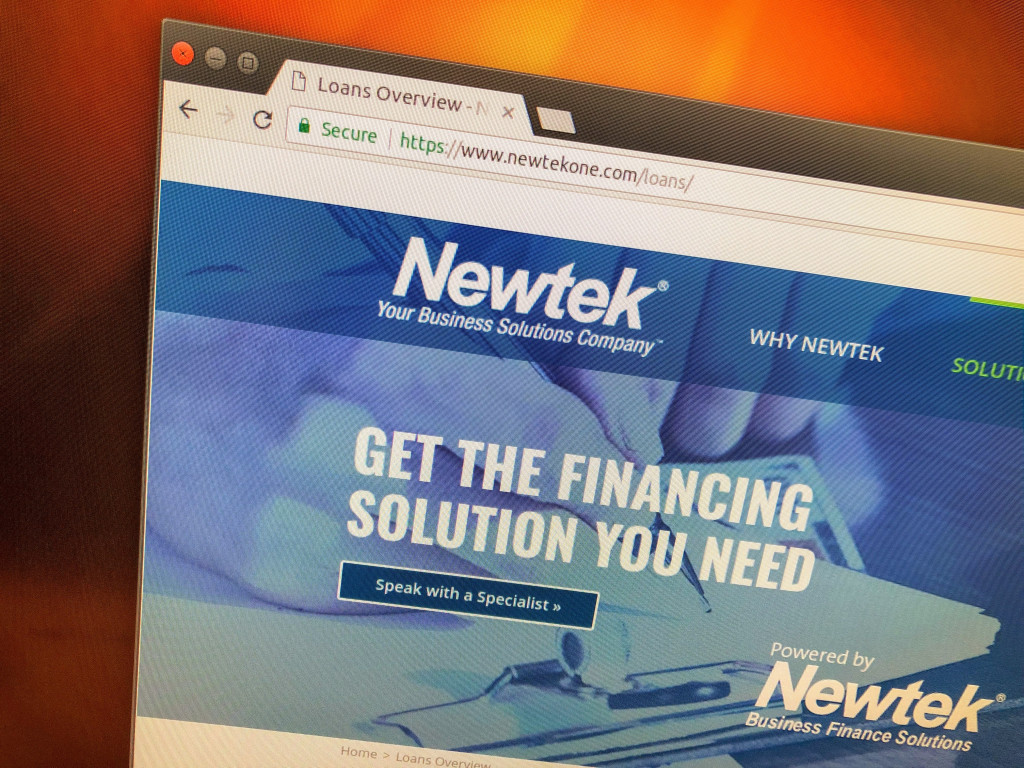SBFA Launches Broker Council
May 11, 2018
The Small Business Finance Association (SBFA) announced today the launch of a new initiative called the SBFA Broker Council designed to create and implement a set of best practices for brokers of alternative funding products.
“I think this would create two playing fields,” said SBFA member and CEO of United Capital Source Jared Weitz. “A playing field where a group belongs to this association and we understand that that group is acting in best practice, and another group that is acting on their own behalf, and we hope that they’re acting in best practice, but we can’t verify it. Folks in our group we can verify.”
Weitz and James Webster, CEO and co-founder of National Business Capital, are spearheading the SBFA Broker Council. They are the co-chairs and are in the process of selecting a board of other brokers.
What would membership in the SBFA Broker Council mean? It would mean abiding by a set of best practices. Weitz told deBanked that he and Webster would like to implement background checks on owners of brokerages and would like to make sure that brokers are storing data in their offices properly so that merchants aren’t vulnerable to having their private information stolen and abused.
They also want to make sure that brokers have the appropriate licenses in states that require them, that fees are being explained to merchants transparently and that merchants are not being triple or quadruple funded at once, “hurting the cash companies and the merchants,” Weitz said.

Membership in the SBFA Broker Council would require SBFA membership. Current members include funders, ISOs/brokerage companies and vendors that are active in the alternative funding space.
“To participate, we want members,” said Jeremy Brown, Chairman of the SBFA. “We want to give [broker members] sort of our seal of approval, and we want to know that they’re going to represent the ideals we stand for.”
Brown said that brokers have a reduced membership fee: $475/month for smaller brokerages and $950/month for larger ones.
Brown, who is also Chairman of RapidAdvance, a funding company, said that having membership in or an organization that has a set of standards would give him comfort as a funder.

“[This] would give me a lot of confidence that you’re a good actor,” Brown said, “because one of the problems in the industry is that you do have people in an unregulated business that do unethical things. So knowing who to deal with is really important and valuable.”
The SBFA is a non-profit advocacy organization with a mission to educate policymakers and regulators about the alternative funding business. According to today’s announcement, a goal of the SBFA Broker Council is to promote brokers who act fairly. But how could a third party association advance a broker’s career?
Weitz said:
“We would be able to have a badge on our email and on our website that says we are SBFA broker approved, meaning that anyone who’s a part of this council…would be on the [SBFA] website so we can build credibility when we’re on the phone with a merchant. We can say, ‘Hey, you probably spoke to three or four different brokerage shops today. It’s prudent to do that…however, let’s make sure that the ones you’re talking to belong to this association because those are the ones that are going to act on your behalf, the right way.”
FinMkt Launches ISO Business
May 10, 2018
FinMkt has launched a broad ISO, working with referral partners from brokers to accountants to small business advisors. With two years of experience facilitating consumer lending, the company has just entered the small business lending market.
“We took the same engine that we used on the consumer side and we rolled it over to the small business side,” said FinMkt’s VP of Business Development who is overseeing this new division, called Bizloans.
The Bizloans brand within FinMkt started at the end of last year, but has been in stealth mode for the last three to six months, Sklar told deBanked. So far, Bizloans has facilitated $15 million in loan application requests over the last 60 days. Of this, roughly $5 million has been funded.
The new division can present small businesses with a variety of financing, from merchant cash advance to factoring and lines of credit. In the few months that FinMkt’s Bizloans has been in operation, Sklar said that real estate asset-backed loans, equipment leasing and merchant cash advance has made up the bulk of the funding products facilitated.
For MCA products, $35,000 has been the average request and $150,000 has been the average for equipment leasing. According to Sklar, some of the funding companies that Bizloans has already worked with include OnDeck, Gibraltar, SOS Capital, 6th Avenue Capital and the San Diego-based bank holding company, BofI.
For successfully funded deals, Sklar said that they will get paid a commission and then pay the broker, depending on how involved they were in the deal.
“The commission splits vary depending on the amount of legwork and the amount of sophistication [the broker has] in the industry,” Sklar said.
For deals where the broker did most all of the work and simply used Bizloans as a platform, those brokers will generally get 80% of the commission, Sklar said. If the broker only supplied the lead, then they may only get 40%. Bizloans offers training to brokers less familiar with the industry.
Founded in 2011 by CEO Luan Cox and CTO Sri Goteti, FinMkt initially operated in the crowdfunded securities space. The company of 15 people is headquartered in New York City and has an office in Hyderabad, India.
SmartBiz Adds Seacoast Bank as a Partner
May 9, 2018 SmartBiz announced yesterday that it has added Seacoast Bank as one of its partner banks, bringing the total number of its bank partners to eight. Seacoast Bank is one of Florida’s largest regional banks with approximately $5.8 billion in assets and $4.6 billion in deposits as of December 31, 2017.
SmartBiz announced yesterday that it has added Seacoast Bank as one of its partner banks, bringing the total number of its bank partners to eight. Seacoast Bank is one of Florida’s largest regional banks with approximately $5.8 billion in assets and $4.6 billion in deposits as of December 31, 2017.
“I think they’ve got a real innovation mindset as a way to deliver on customer needs,” SmartBiz CEO Evan Singer said of Seacoast.
Singer told deBanked that SmartBiz seeks to partner with banks that embrace technology and like working with fintech companies, which is why he said Seacoast is so appealing.
“We are very focused on meeting small business needs from a capital perspective,” Singer said, “[which means saying] yes to the amount that I need in a way that I can repay it at the lowest rate I can get, [and] in a fast and easy way. If a bank has a similar philosophy on meeting customer needs, putting customers first and wanting to embrace technology…then it could be a good fit.”
SmartBiz is an online marketplace for SBA loans that helps small businesses apply for loans and helps banks underwrite them. The company makes money by licensing software to both parties to ultimately connect the right small business with the most appropriate bank, given the customer’s needs and the bank’s credit parameters.
Seacoast Bank has offices in cities throughout Florida, including Fort Lauderdale, Boca Raton, West Palm Beach and Orlando.
“We see SmartBiz Loans and its unique technology platform as a great fit and the means to supply more qualified small business owners with the capital infusion they need to grow,” said Julie Kleffel, executive vice president and community banking executive at Seacoast Bank.
In February, SmartBiz announced that it had surpassed JP Morgan as the number one facilitator of SBA 7(a) loans under $350,000 for the calendar year 2017. When asked if SmartBiz is on par to maintain its record for 2018, Singer said that he thinks so, but would have to check the data. He said SmartBiz is growing and is currently looking to hire.
Founded in 2009, SmartBiz employs a little over 100 people. The company is headquartered in San Francisco and has an office in Austin. The employee ratio between San Francisco and Austin is roughly 80 and 20 percent, respectively.
Lending Club Funded $2.3B in Q1, Brushing Off FTC Suit
May 8, 2018Lending Club (NYSE: LC) originated $2.31 billion worth of loans in Q1 this year, according to the company’s earnings report released this afternoon. This is an 18% increase in originations over last year’s Q1, yet it is a decrease of 5% compared to the fourth quarter of 2017.
Lending Club has been embroiled in legal problems lately. The company was sued by the Federal Trade Commission at the end of April for misleading marketing tactics. Additionally, according to the earnings report, Lending Club settled a class action lawsuit for $77.25 million during the first quarter of 2018.
The Q&A session following Lending Club’s Q1 2018 conference call today was replete with questions from analysts regarding the FTC lawsuit and how it might be affecting Lending Club’s business. CEO Scott Sanborn and other executives on the conference call maintained that the company’s marketing and disclosure practices are in compliance and that the FTC’s lawsuit has not had a negative impact.
“We’re not seeing a change in demand or an increase in complaints,” one of the executives said.
“We’re always making changes, but nothing specifically in response to [the FTC lawsuit,]” another said.
The San Francisco-based peer-to-peer lender was founded in 2007 and went public in December 2014.
SBA 504 Loans Decline YoY 2017-2018
May 8, 2018 Funding of SBA 504 loans decreased by 26 percent from January through March 2017 compared to January through March of 2018, according to SBA (Small Business Administration) data. In the first three months of 2017, $1,326,601,000 of SBA 504 loans were funded compared to $987,896,000 of SBA 504 loans in the first three months of 2018. The number of companies that received SBA 504 loans also fell January through March year over year. There were 1,574 companies that took SBA 504 loans from January through March of 2017, compared to 1,290 companies over the same period this year, a decrease of 18 percent.
Funding of SBA 504 loans decreased by 26 percent from January through March 2017 compared to January through March of 2018, according to SBA (Small Business Administration) data. In the first three months of 2017, $1,326,601,000 of SBA 504 loans were funded compared to $987,896,000 of SBA 504 loans in the first three months of 2018. The number of companies that received SBA 504 loans also fell January through March year over year. There were 1,574 companies that took SBA 504 loans from January through March of 2017, compared to 1,290 companies over the same period this year, a decrease of 18 percent.
The SBA 504 loan is a government-backed loan that can only be used for commercial real estate or long-term machinery purchases. It differs from the more common SBA 7(a) loan, which is a general purpose loan that can be used for anything from working capital to business acquisition.
When contacted regarding the decline in the dollar amount volume of loans issued this year compared to last, the SBA submitted the following response from Bill Manger, Associate Administrator for the SBA’s Office of Capital Access:
“After a very strong FY17 of 504 SBA Lending, this year the program has performed on par with longer-term trends. We have also seen banks making more conventional loans without the SBA guarantee due to the strength of the U.S. economy and increased small business optimism brought about by the regulatory reforms and tax cuts championed by the Trump Administration. The SBA continues to work with our Certified Development Companies and Lending Partners to further strengthen the 504 Program and ensure it is helping create and grow U.S. small businesses. In addition to our 10 Year and 20 Year Debentures, last month the SBA implemented a 25 Year Debenture for 504 loans, offering fixed-rate financing for an additional 60 months to our small business owners. We believe this new product will be looked upon favorably by our stakeholders and borrowers by offering a longer term loan that will improve the cash flow of entrepreneurs utilizing the program.”
Elevate’s Net Income Soared in Q1 Year-Over-Year
May 6, 2018 Elevate’s net income increased 459 percent from $1.7 million in Q1 2017 to $9.5 million in Q1 2018, according to the company’s Q1 financial statement released on April 30th.
Elevate’s net income increased 459 percent from $1.7 million in Q1 2017 to $9.5 million in Q1 2018, according to the company’s Q1 financial statement released on April 30th.
“What you are now seeing is a business beginning to leverage its scale in a market that is almost boundless,” said Elevate CEO Ken Rees. “We are gratified by our strong start to 2018 and by the fact that we’ve done it offering what we believe are the most responsible credit products available to non-prime borrowers today.”
Elevate (NYSE: ELVT) provides funding solutions to non-prime consumer customers. They offer three products: RISE, a state-licensed online lender that offers up to $5,000 in unsecured installment loans and lines of credit, Elastic, a bank-issued line of credit, and Sunny, a short-term loan product for customers in the UK. RISE and Elastic serve the US market.
The RISE product has performed well, likely buoyed by the hiring of Tony Leopold a year ago to build on the product. Elevate is still new as a public company. It recently celebrated its one year anniversary on the New York Stock Exchange in April.
According to the Q1 earnings report, the total number of new customer loans for the first quarter of 2018 was approximately 70,000, an increase of 32.1 percent compared to approximately 53,000 new customer loans in the first quarter of 2017.
Founded in 2014, the Fort Worth, TX-based company has originated $5.5 billion to 1.9 million customers. The company also has offices in Dallas, TX, San Diego, CA, and in the UK, in London and Bury St. Edmunds.
Newtek Funds $91 Million in 7(a) loans in Q1
May 3, 2018 Newtek (Nasdaq:NEWT), a provider of business and financial solutions, funded $91.4 million of SBA 7(a) loans in the three months ending March 31, 2018, according to the company’s Q1 2018 earnings report released yesterday. This is an increase of 16.2 percent year-over-year from $78.6 million funded in SBA 7(a) loans in the three months ending March 31, 2017.
Newtek (Nasdaq:NEWT), a provider of business and financial solutions, funded $91.4 million of SBA 7(a) loans in the three months ending March 31, 2018, according to the company’s Q1 2018 earnings report released yesterday. This is an increase of 16.2 percent year-over-year from $78.6 million funded in SBA 7(a) loans in the three months ending March 31, 2017.
On this morning’s phone call, CEO Barry Sloane was particularly pleased to announce Newtek’s loan referral growth of 86.9 percent from Q1 2017 ($2.6 million) to $4.8 million in Q1 2018.
“It gives us the ability to make selection on opportunities that come to us directly from business owners,” Sloane said, “without the use of brokers, and pick the best credits available.”
Newtek also closed on $3.9 million in SBA 504 loans for the three months ending on March 31, 2018. SBA 504 loans provide approved small businesses with long-term, fixed-rate financing used to acquire fixed assets for expansion or modernization.
The New York-based company was founded in 1998, went public in 2000, and has been a BDC (Business Development Company) for three and a half years. BDCs are publicly traded companies that make investments in private companies in the form of loans or equity securities. And the structure provides certain tax advantages, according to Solar Capital.
Newtek acquired United Capital Source in October 2017, which is still led by its original CEO Jared Weitz, who was featured in deBanked’s September/October 2015 issue.
Newtek had a net investment loss of $2.8 million for Q1 2018.
Aside from the company’s headquarters in Lake Success, NY, Newtek also has loan processing offices in Orlando, FL and Boca Raton, FL.
Shopify’s Funding Automation Key to Its Growth
May 2, 2018 Canadian e-commerce company Shopify (NYSE:SHOP) has a business funding arm called Shopify Capital that issued $60.4 million in merchant cash advances in Q1 this year, according to the company’s earnings report yesterday.
Canadian e-commerce company Shopify (NYSE:SHOP) has a business funding arm called Shopify Capital that issued $60.4 million in merchant cash advances in Q1 this year, according to the company’s earnings report yesterday.
The funding operation offers an MCA product exclusively to merchants that are customers of Shopify. The company helps small business owners create online stores, with products ranging from web design to marketing and analytics. Currently, Shopify supports more than 600,000 small businesses worldwide.
Shopify Capital was launched in April 2016, but a company representative said it wasn’t until April 2017 that it started using algorithms 100 percent to automate offers of capital to merchants.
“What Shopify can see is a lot of patterns in a merchant’s [online] store,” a company spokesperson told deBanked. “How engaged is that merchant? What has their GMV (Gross Merchant Volume) been? How spotty is their GMV? How often do they sell? There’s a bunch of different factors that help us predict GMV going forward. And as [our] algorithm gets better and smarter, we are able to get more granular in our offers.”
Many of Shopify Capital’s small business owner clients are new business owners who would not qualify for loans from banks, but need money to expand their businesses.
“Business owners typically spend copious hours putting an application together and funds typically take two to three weeks to receive,” a different Shopify spokesperson said. “Shopify Capital is designed to provide our merchants with timely access to Capital without putting them through additional financial stress…[And] merchants receive financing based on our predictive technology to determine what makes sense for their business in their trajectory.”
Shopify was founded in 2004 and is headquartered in Ottawa, Canada.






























